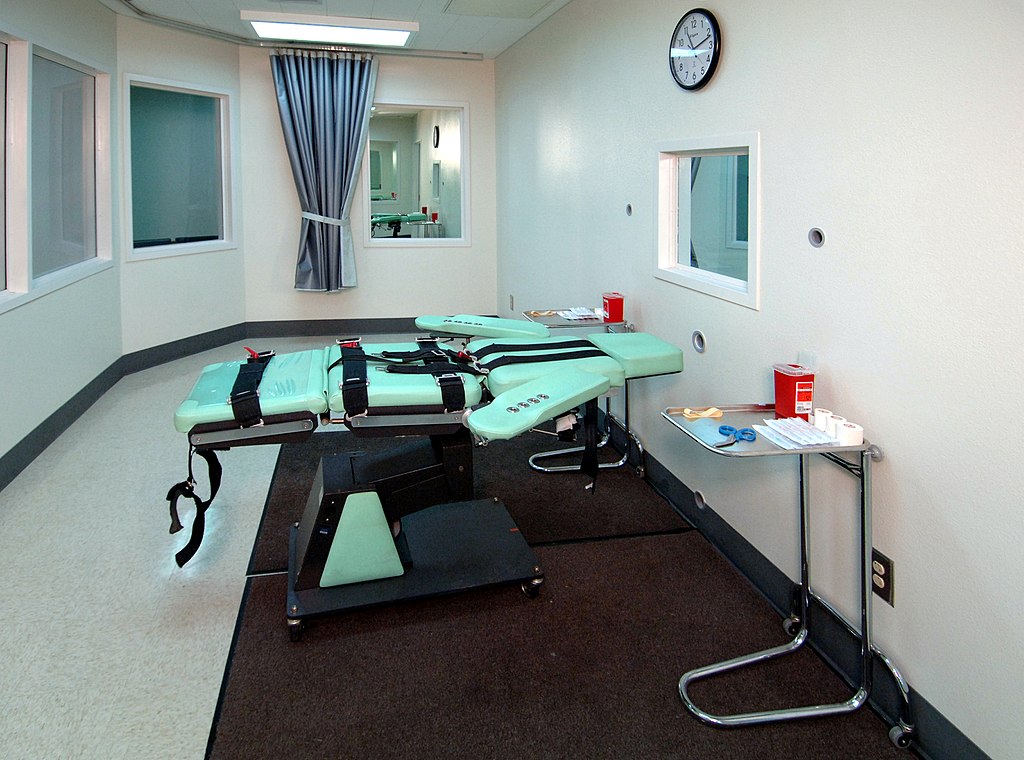First execution using fentanyl carried out after 8th Circuit rejects appeal

Photo by CACorrections via Wikimedia Commons.
Nebraska inmate Carey Dean Moore became the first person to be executed with the drug fentanyl on Tuesday after a federal appeals court rejected a drug company’s challenge to two other drugs used in the four-drug lethal cocktail.
Moore, 60, was executed for killing two cab drivers in 1997, report the Associated Press, USA Today, the Omaha World-Herald, NPR and the Washington Post.
Moore mouthed the words “I love you” to his family about an hour before he died, according to tweets by a KLKN reporter. Witnesses said Moore coughed before dying, but there did not appear to be other complications.
Moore released a statement admitting guilt while asserting that at least four others on Nebraska’s death row claim to be innocent.
The four drugs used in Moore’s execution were diazepam and fentanyl to cause unconsciousness, cisatracurium to cause paralysis, and potassium chloride to to stop the heart.
German drug manufacturer Fresenius Kabi had sought to stop the execution through a lawsuit filed by its American arm. The company makes cisatracurium besylate and potassium chloride, and said it opposes use of its products in executions. Nebraska said it obtained the drugs through a licensed pharmacy.
U.S. District Judge Richard Kopf ruled Friday that the company’s claim of irreparable injury was speculative and there was no indication the state obtained the drugs through misrepresentation or by circumventing the company’s distribution controls.
In a decision titled “The Time Has Come,” Kopf said Moore himself wanted to be executed, and there is no doubt of guilt. “Decades have slipped by since Mr. Moore was sentenced to death,” Kopf wrote. “The people of Nebraska have spoken. Any delay now is tantamount to nullifying Nebraska law, particularly given the rapidly approaching expiration of two of the drugs and the total absence of any feasible alternatives.”
The St. Louis-based 8th U.S. Circuit Court of Appeals affirmed Kopf’s decision on Monday.
Nebraska used the electric chair in its last execution was 21 years ago. The Nebraska Legislature had banned the death penalty in 2015 by overriding a veto by Gov. Pete Ricketts. Voters reinstated capital punishment the next year in a referendum partly financed by Ricketts.



